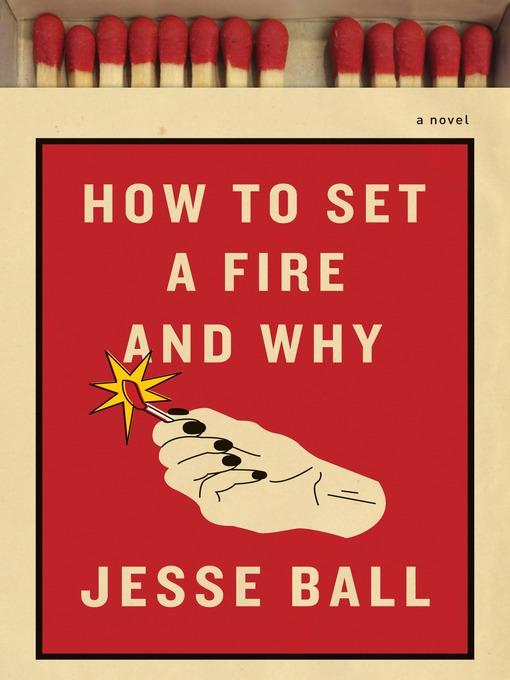
How to Set a Fire and Why
A Novel
کتاب های مرتبط
- اطلاعات
- نقد و بررسی
- دیدگاه کاربران
نقد و بررسی

Narrator Emma Galvin's youthful voice and snarky attitude put Lucia Stanton right in the listener's face. A smart-mouthed, darkly ironic young woman in the Holdenesque tradition, Lucia wants to burn down the world. She was kicked out of high school for stabbing a boy in the neck with a pencil. She reads Rumi, Antonin Artaud, Alfred Jarry, and Benjamin Franklin. Her mother is nonresponsive in a "lunatic house," but Lucia dutifully suffers through visits. Galvin makes Lucia's nihilism credible, for hers is an empty world. When she hears of a national network of arson clubs, "for people who are fed up with wealth and property, and want to burn everything down," things begin to look up. Galvin is convincing in Jesse Ball's very dark, very truthful novel. S.J.H. © AudioFile 2016, Portland, Maine

Starred review from April 4, 2016
The beautifully blunt narration of a gifted delinquent propels this excellent sixth novel from the author of A Cure for Suicide. Orphaned after the death of her father and her mother’s subsequent institutionalization, young Lucia Stanton finds herself expelled from high school (the specific location of which is never given) for stabbing a star athlete with a pencil. Entrusted to the care of her elderly, sagely aunt, Lucia transfers to Whistler High, where, in the form of a secret arson society, she discovers an outlet for her inner turmoil. Penning her own pamphlet on fire starting (the titular “How To Set a Fire and Why”), Lucia details a philosophy that smartly parallels the novel’s own—namely, that writing literature is, like arson, an act of creation and destruction. The few successful friendships and personal bonds Lucia makes are swiftly undone by a late-act tragedy, but, in the book’s pyromaniacal finale, Lucia finds a thrilling form of freedom. In an age of blandly interchangeable YA narrators, this novel is a song of teenage heartbreak sung with a movingly particular sadness, a mature meditation on how actually saying something, not just speaking, is what most makes a voice human. Agent: Becky Sweren, Kuhn Projects.

Starred review from October 1, 2016
Morbid fascination will keep listeners riveted to Ball's (A Cure for Suicide) shocking new novel as teenager Lucia Stanton chronicles--with unnerving detachment--her troubled life through a collage of blunt paragraphs, random lists, outrageous predictions, and a "pamphlet" bearing the book's title inserted part-way into the story. Lucia's father is dead, her mother is in a mental institution; she lives "pitifully" with her "really nice" septuagenarian aunt in a converted garage. Expelled after refusing to apologize to a student she stabbed for touching her most prized possession--her father's lighter--Lucia transfers to another school where, amid detention and the wrong type of friends, one of her teachers recognizes her sharp intelligence and enables her to apply to a "fancy school" that just might save her life. But between adults who fail her and peers who mislead her, Lucia's future faces inflammatory disaster. Narrator Emma Galvin's steely presentation is an ideal embodiment of Ball's untethered, lost young rebel. VERDICT With crossover potential for adult and young adult audiences, the demand for Fire should encourage expedited acquisition for most collections. ["A startling, unsettling, and significantly memorable novel": LJ 6/1/16 starred review of the Pantheon hc.]--Terry Hong, Smithsonian BookDragon, Washington, DC
Copyright 2016 Library Journal, LLC Used with permission.

























دیدگاه کاربران